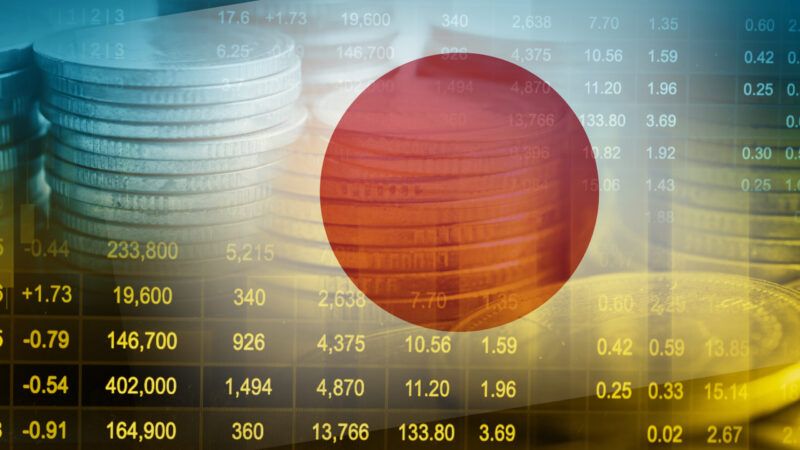Lessons for the U.S. from Japan's Lost Decade
Facing an economic downturn in the 1990s, Japan racked up debt. America should not repeat that mistake.

The Nikkei just had its worst day since 1987, and the U.S. stock market, which already took a dramatic dive Friday, is tumbling further this week. While it was America's poor jobs report that spurred the global sell-off, there is much we can learn from other countries' experiences—particularly Japan's.
There was a time when leading economists predicted Japan would overtake the United States as the world's leading economy. Instead, the Japanese central bank's loose monetary policy produced a real estate bubble, which eventually burst. The government responded with "stimulus" and easy credit, which dramatically increased the nation's debt and extended the poor economic conditions. The result was the "lost decade" of 1991–2001, characterized by multiple recessions, poor economic growth, high taxes, and high inflation.
In the U.S. now, the total debt held by the public recently surpassed $35 trillion—just 209 days after hitting $34 trillion. Add unfunded obligations for Social Security and Medicare, and that $35 trillion becomes $113.2 trillion.
And yet, few Americans seem to be phased by the news. Economist Brian Reidl laments, "Few voters, or even politicians, have fully grasped how perilous Washington's fiscal outlook has become."
Japan's lost decade didn't just hurt government balance sheets; it brought long-lasting damage to the Japanese people. As deficits and debt crowded out government spending, life became increasingly expensive for the average person in Japan. Despite two short-lived income tax cuts (a yearlong tax cut from 1994–1995 and a two-year cut spread from 1998–2000), long-term aggregate consumption was hindered when the government raised a consumption tax to pay down the rising national debt.
With such weak economic growth, Japan saw a decline in middle-class incomes and employment—and marriage and birth rates. There was an increase in single-person households, individuals living with their parents, and related mental health issues. This "lost generation" is still reeling from the poor fiscal responsibility of those that came before them. I look at the frighteningly high suicide rate in Japan and wonder whether American kids will come to see the world in the same way.
Here in the U.S., net interest payments on the national debt have now exceeded military spending, Medicaid, and all government spending on children. Meanwhile, politicians on both sides of the aisle are happy to ignore debt and unfunded obligations, promising not to touch middle-class entitlements out of fear of losing an election. The combined Social Security Old Age and Survivors and Disability Insurance Trust Fund is expected to exhaust its reserves by 2033. Medicare Hospital Insurance is on track to be insolvent by 2036, and the rest of Medicare is expected to experience major stress. Are we headed in the same direction as debt-drenched Japan?
If there is reason for fear, there is also reason for hope. Americans can rein in heavy-spending politicians and an activist central bank with tools like a balanced budget amendment, constitutional tax and spend rules that would limit wasteful spending and keep the government accountable to the people, and a money growth rate rule which would reduce uncertainty about the future purchasing power of the dollar and prevent political actors from using the Federal Reserve to advance political goals.
It's not too late to stop the debt crisis and the disastrous financial and social effects it could bring. Let the big red sun in Japan's flag be a blinking red warning light.


Show Comments (13)